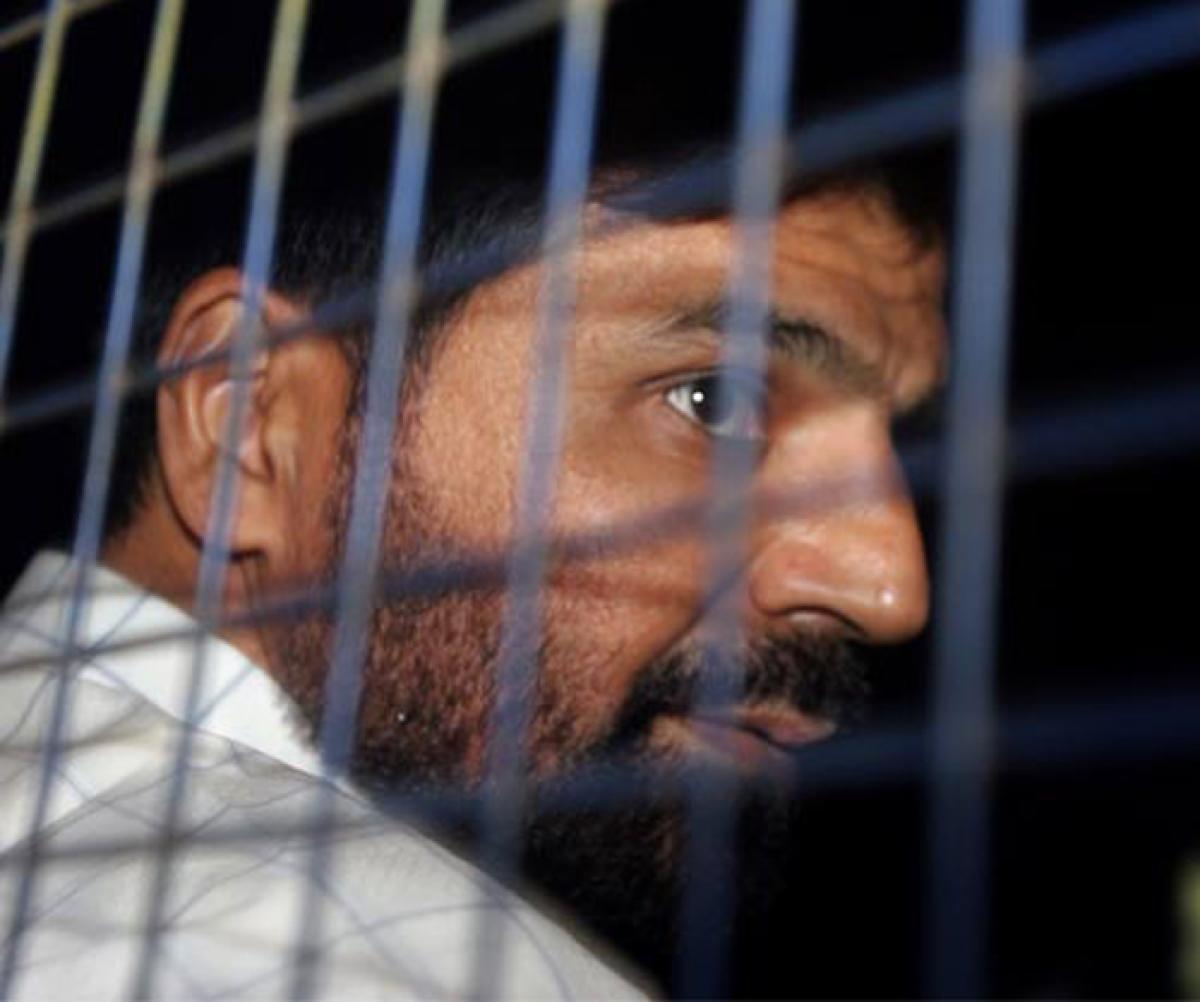Live
- Officials unavailable at Tahsildar office even at 11 am!
- DC reviews arrangements for Brahmana Vellemla LIS inauguration
- First night safari in UP to begin by Dec 2026: Yogi
- Memorandum filed against upcoming ethanol plant
- Stage set for BJP-SP electoral battle in UP
- Decision to relocate key legal institutions from Kurnool opposed
- Channi apologises for remarks against women
- Nellore: 700 mobile phones worth Rs 1.5 cr recovered
- BRS miserably failed in administration: Congress
- All schools in UP’s NCR districts go online
Just In
A fitting case to abolish capital punishment, opines Human Rights Forum


There cannot be a better case than Yakub Memon’s to prove that capital punishment should be abolished in this country, said State general secretary of Human Rights Forum V S Krishna. In a release here on Tuesday, Krishna said Yakub Memon is an accused in the 1993 Mumbai bomb blasts case in which 257 people were killed. The Supreme Court confirmed death penalty to Yakub recently.
Yakub Memon Dealth Penalty
Visakhapatnam: There cannot be a better case than Yakub Memon’s to prove that capital punishment should be abolished in this country, said State general secretary of Human Rights Forum V S Krishna. In a release here on Tuesday, Krishna said Yakub Memon is an accused in the 1993 Mumbai bomb blasts case in which 257 people were killed. The Supreme Court confirmed death penalty to Yakub recently.
He said there were several loopholes which make a strong case for commutation of the death sentence into life imprisonment. Citing reasons why Yakub Memon must not be hanged unto death, Krishna said the place of arrest is a disputed fact. While the police claim that he was arrested at New Delhi railway station, Yakub maintained that they nabbed him in Nepal, so the veracity of this material fact is questionable.
Secondly, one reason for his conviction is that Yakub would know about the conspiracy which took place in his house as he shared the same roof with his brother Tiger Memon. Such a fact might lead to a suspicion but it is not a conclusive proof of his involvement in the crime. There is a likelihood of his knowing but that suspicion in itself is not sufficient to prove his guilt.
The conviction was based completely on circumstantial evidence, so Yakub is entitled to a benefit of doubt on this count. He was tried by a Special Court constituted under the draconian law, the Terrorist and Disruptive Activities (Prevention) Act, 1987 (TADA). The Parliament allowed this infamous law to lapse in 1995 as there was widespread protest against its misuse.
Yakub was found guilty for conspiring and not for his direct involvement in the crime. The maximum punishment for conspiracy under the infamous TADA is life imprisonment, not death penalty. While those found guilty of direct involvement in the commission of the crime were imposed lesser punishment, Yakub who is accused of conspiracy is awaiting death penalty.
This indicates that Yakub is being punished for the guilt of association with wrong-doers rather than for committing the crime. Being a brother of Tiger Memon is not a crime for which he should face the gallows. Krishna said B Raman, a former Additional Secretary in the Cabinet Secretariat who was one of the officers who brought Yakub to justice and played a pivotal role in prosecuting him took an exception to imposition of death penalty on him.
In a letter, he stated in unequivocal terms that Yakub deserves a reprieve for providing vital information to the police and for convincing his family members to surrender and face trial. Raman considered this as a mitigating circumstance. Though Raman’s letter is brought to judicial notice through the media much later it has to be taken into cognisance now while considering Yakub’s writ and mercy petitions.

© 2024 Hyderabad Media House Limited/The Hans India. All rights reserved. Powered by hocalwire.com






